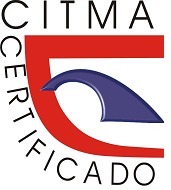A vision to the future: Recommendations for the 2017 European Interoperability Framework
DOI:
https://doi.org/10.5281/zenodo.5545955Keywords:
European Interoperability Framework, Cultural Interoperability, Co-Creation, Multi-level Governance, European UnionAbstract
Interoperability has proven to be key for the digitalization of public administrations. It can help to improve public services while saving time, reducing costs and increasing transparency. It has also been recognized as crucial to overcome societal challenges, such as climate change, housing, health, energy efficiency and urban mobility. Yet interoperability implementation is complex and context-sensitive. In order to support the Member States of the European Union, the European Commission has been developing European Interoperability Frameworks since 2004. The most recent framework dates from 2017 and is under review. Building upon research expertise of the authors and their participation in the development of proposals for new interoperability frameworks for the European Commission, the objective of this reflection article is twofold: 1) to propose changes in the definition of interoperability and additions to both the layers and principles of the 2017 EIF and 2) to provide an overview for non-European scholars on the latest developments around the 2017 EIF. A revised version of the interoperability definition, the addition of co-creation as a principle together with a cultural interoperability layer, and a cross-cutting layer of Skills and Competencies would facilitate an alignment of the revised framework with the recently developed interoperability frameworks. Considering these revisions could help to decrease fragmentation among the different efforts conducted by the European Commission. Finally, by sharing these latest developments regarding the EIF and the developed proposals with a Latin American audience, the authors aim to support the exchange of experiences between Europe and Latin American.
References
Bache, I., & Flinders, M. (2004). Multi-Level Governance and the Study of the British State. Public Policy and Administration, 19(1), 31–51. https://doi.org/10.1177/095207670401900103
Casiano Flores, C., Chantillon, M., Tan, E., Crompvoets, J., De Groof, V., Gonzalez, I., … Sorgi, B. (2021). Study on the development of a European framework for Study on the development of a interoperability skills and European framework for competences in the public sector interoperability skills and (EFISC). Luxembourg. Retrieved from https://op.europa.eu/en/publication-detail/-/publication/4e07a84f-abbf-11eb-927e-01aa75ed71a1
Casiano Flores, C., Rodriguez Müller, A. P., Albrecht, V., Crompvoets, J., & Steen, T. (2021). Towards the Inclusion of Co-creation in the European Interoperability Framework. In Proceedings of the 14th International Conference on Theory and Practice of Electronic Governance (ICEGOV 2021). Athens: New York: ACM Press.
Casiano Flores, C., Vikolainen, V., & Crompvoets, J. (2021). Governance assessment of a blue-green infrastructure project in a small size city in Belgium. The potential of Herentals for a leapfrog to water sensitive. Cities, 117, 103331. https://doi.org/10.1016/j.cities.2021.103331
CEPAL, & EUROPEAID. (2007). Libro blanco de interoperabilidad de gobierno electrónico para América Latina y el Caribe. Retrieved from https://repositorio.cepal.org/bitstream/handle/11362/2871/1/S2007049_es.pdf
Chantillon, M., Casiano Flores, C., Crompvoets, J., Sallano, M., Eiras Antunes, M., Garcia Barron, M., … Sidique, G. (2021a). Final Study Report - Proposal for a European Interoperability Framework for Smart Cities and Communities (EIF4SCC). Luxembourg. https://doi.org/10.2799/085469
Chantillon, M., Casiano Flores, C., Crompvoets, J., Sallano, M., Eiras Antunes, M., Garcia Barron, M., … Sidique, G. (2021b). Proposal for a European Interoperability Framework for Smart Cities and Communities (EIF4SCC). Luxembourg. https://doi.org/10.2799/816559
Chantillon, M., & Crompvoets, J. (2020). ISA2 Action 2016.23: Legal Interoperability D05.02 Study on Decentralised Agencies Survey Overview & Results. Brussels.
Chantillon, M., Crompvoets, J., & Casiano, C. (2020). D02.01 Study: Smart Cities and Communities Interoperability Framework: Concept, Definition(s) and Categories. Brussels.
Chantillon, M., Crompvoets, J., & Peristeras, V. (2020). Prioritizing public values in e-government policies : A document analysis. Information Polity, 25(3), 275–300. https://doi.org/10.3233/IP-190126
Chantillon, M., Simonofski, A., Tombal, T., Kruk, R., Crompvoets, J., de Terwangne, C., … Vanderose, B. (2017). FLEXPUB Public e-Service Strategy - Report WP2. FLEXPUB - Work package 2 - Baseline Measurement. Leuven.
Commission, E. (2016). Workshop Report: Supporting the implementation of eGovernment at regional and local level. Brussels.
Commission, E. (2017). New European Interoperability Framework. Promoting seamless services and data flows for European public administrations. Luxembourg. Retrieved from https://ec.europa.eu/isa2/sites/isa/files/eif_brochure_final.pdf
Commission, E. Communication from the Commission to the European Parliament, the Council, the European Economic and Social Committee and the Committee of the Regions - Towards a common European data space (2018). Brussels: European Commission.
Criado, J. I., Gascó, M., & Jiménez, C. E. (2011). Interoperabilidad de Gobierno electrónico en Iberoamérica. Estudio comparativo y recomendaciones de futuro. Revista Del CLAD Reforma y Democracia, 50, 75–104.
Edelenbos, J., & Van Meerkerk, I. (2016). Normative theory. In C. Ansell & J. Torfing (Eds.), Handbook on theories of governance (pp. 402–415). Cheltenham: Edward Elgar Publishing.
Eleftheriadou, D. (2019). 100 Intelligent Cities Challenge: A strategy for cities in the 21st century. Brussels: European Commission.
Eurocities. (2019a). 74 cities have already signed the Declaration on citizens engagement.
Eurocities. (2019b). Engaging with citizens - Report on results of the “Cities4Europe - Europe for citizens” campaign and the citizens panel pilot project. Brussels. https://doi.org/10.1016/b978-0-12-822596-7.00008-5
Eurocities. (2020). Peope-centred Artificial Intelligence (AI) in cities - Response to EU’s white paper on AI. Brussels: Eurocities.
European Commission. (2004). European Interoperability Framework for Pan-European eGovernment Services. Luxembourg: Office for Official Publications of the European Communities.
European Commission. (2017a). eGovernment in local and regional administrations. Brussels.
European Commission. (2017b). ISA2 - Interoperability solutions for public administrations, businesses and citizens. Retrieved May 19, 2021, from https://ec.europa.eu/isa2/eif_en
European Commission. (2017c). The New European Interoperability Framework. https://doi.org/10.2799/78681
European Commission. Proposal for a Regulation of the European Parliament and of the Council establishing the Digital Europe Programme for the period 2021-2027 (2018). https://doi.org/10.1017/CBO9781107415324.004
European Commission. (2021). Interoperable digital public services – European Interoperability Framework evaluation & strategy.
European Parliament, & Council. Decision 2004/387/EC of the European Parliament and of the Council of 21 April 2004 on interoperable delivery of pan-European eGovernment services to public administrations, businesses and citizens (IDABC) (2004). Brussels: European Parliament / Council of Ministers of the European Union.
European Parliament, & Council of the European Union. Directive (EU) 2019/1024 of the European Parliament and of the Council of 20 June 2019. (2019). Brussel: European Parliament / Council of the European Union.
European Union. (2021). EIF Toolbox. Retrieved May 18, 2021, from https://joinup.ec.europa.eu/collection/nifo-national-interoperability-framework-observatory/solution/eif-toolbox/eif-toolbox
Europese Commissie. (2010). Communication from the Commission to the European Parliament, the Council, the European Economic and Social Committee and the Committee of Regions ’Towards interoperability for European public services - Annex 2 (No. COM(2010) 744 final). Brussel.
Fiorentin, E. (2019). Digital Cities Challenge - The experience of Padua. European Commission.
Frankiewicz, B., & Chamorro-Premuzic, T. (2020). Developing employees Digital Transformation Is About Talent, Not Technology. Harvard Business Review.
Guijarro, L. (2007). Interoperability frameworks and enterprise architectures in e-government initiatives in Europe and the United States. Government Information Quarterly, 24(1), 89–101.
Gyrard, A., & Serrano, M. (2016). Connected smart cities: Interoperability with SEG 3.0 for the internet of things. Proceedings - IEEE 30th International Conference on Advanced Information Networking and Applications Workshops, WAINA 2016, (3), 796–802. https://doi.org/10.1109/WAINA.2016.151
High-Level Expert Group on Business-to-Government Data Sharing. (2020). Towards a European strategy on business-to-government data sharing for the public interest. Brussels. https://doi.org/10.2759/406717
ISA2. (n.d.). Interoperability Storyline. Retrieved August 6, 2021, from https://ec.europa.eu/isa2/sites/default/files/eif_leaflet_final.pdf
Kern, K. (2019). Cities as leaders in EU multilevel climate governance: embedded upscaling of local experiments in Europe. Environmental Politics, 28(1), 125–145. https://doi.org/10.1080/09644016.2019.1521979
Kshetri, N. (2017). Cybersecurity and privacy issues facing smart cities: Challenges and policy responses.
Kung, A. (2019). Citizen centric approach to data - GDPR revisited. EIP-SCC.
Ministers in charge of eGovernment policy and coordination from 32 countries of the European Union and the European Free Trade Area. (2017). Tallinn Declaration on eGovernment. Tallinn: European Union.
Mureddu, F., & Osimo, D. (2019). Co-Creation of Public Services: Why and How. COVAL. Retrieved from https://lisboncouncil.net/publications/co-creation-of-public-services-why-and-how/
Naser, A. (2021). Gobernanza digital e interoperabilidad gubernamental: una guía para su implementación. Santiago, Chile.
Ojo, A., & Mellouli, S. (2014). Deploying governance networks for societal challenges. Government Information Quarterly. https://doi.org/10.1016/j.giq.2016.04.001
Osimo, D. (2018). How Local Government Reform is Key to Europe’s Digital Success - A Six-Point Programme for eGovernment Renewal. Brussels.
Pantiru, M. C. (2019). Competencies necessary for eGovernment. Retrieved from https://www.eupan.eu/wp-content/uploads/2020/02/2019-final-REPORT-Competencies-necessary-for-eGov-PRES-RO-1.pdf
Pollitt, C. (2013). New Perspectives on Public Services - Place and Technology. Oxford: Oxford University Press.
Pye, L., & Schaaf, K. (2018). Organicity Playbook - How to launch experimentation as a service in your city.
Rodriguez Müller, A. P. (2021). Making Smart Cities “Smarter” Through ICT-Enabled Citizen Coproduction. In Handbook of Smart Cities (pp. 1–21). Cham: Springer International Publishing. https://doi.org/10.1007/978-3-030-15145-4_63-1
Sallamo, M., Wauters, P., O’Neill, G., Schäfer, F., Dastis Alonso, L., Cioffi, A., … Tambouris, E. (2020). Recommendations for organising and governing integrated public services. Luxembourg. https://doi.org/10.2799/85943
Snape, P. (2017). Enduring Learning: Integrating C21st Soft Skills through Technology Education. Design and Technology Education, 22(3), 1–13. Retrieved from https://eric.ed.gov/?id=EJ1164214
Tambouris, E., & Tarabanis, K. (2021). Towards Inclusive Integrated Public Service (IPS) Co-Creation and Provision. In DG.O2021: The 22nd Annual International Conference on Digital Government Research (pp. 458–462). New York, NY, USA: ACM. https://doi.org/10.1145/3463677.3463726
Torfing, J., Sørensen, E., & Røiseland, A. (2019). Transforming the Public Sector Into an Arena for Co-Creation: Barriers, Drivers, Benefits, and Ways Forward. Administration & Society, 51(5), 795–825. https://doi.org/10.1177/0095399716680057
Ubaldi, B., González-Zapata, F., & Piccinin Barbieri, M. (2020). The OECD Digital Government Policy Framework : Six dimensions of a Digital Government. OECD Public Governance Policy Papers. Paris.
URBACT. (2013). The URBACT II Local Support Group Toolkit. Saint-Denis.
Voorberg, W. H., Bekkers, V. J. J. M., & Tummers, L. G. (2015). A Systematic Review of Co-Creation and Co-Production: Embarking on the social innovation journey. Public Management Review, 17(9), 1333–1357. https://doi.org/10.1080/14719037.2014.930505
Downloads
Published
How to Cite
Issue
Section
License
Copyright (c) 2021 Cesar Casiano Flores, Maxim Chantillon, A. Paula Rodriguez Müller, Joep Crompvoets

This work is licensed under a Creative Commons Attribution-NonCommercial 4.0 International License.













